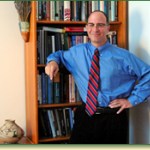History
I'm reading Eric Carlquist's and Harry Järv's massive new anthology of library history, Mänsklighetens minne. For an idea about what the anthology is like, consider that all the contributors are male and that the youngest of them was born in 1947. For an idea about me, consider that I would happily have read all 866 pages of it already in my later teens.
Reading this book, I'm struck yet again by the difference between knowledge "on good authority" and scientific knowledge. Throughout the European and Islamic Middle Ages, throughout the millennia of Chinese civilisation, ancient texts were…
In 1964, Richard Feynman delivered a series of seven lectures to students at Cornell University on "The Character of Physical Law." Decades later, the video footage of the lectures was purchased by Bill Gates—who has said that Feynman could have inspired him to go into physics rather than software—and on Wednesday, Microsoft Research announced that the lectures will be made available on a specially-created website, along with commentary from other physicists, full transcripts of the lectures, and additional related content. The project, called Tuva after an area in Russia where Feynman hoped…
The World's Fair is recreated in all it's glory! Skulls in the Stars is currently hosting the thirteenth installment of the History of Science Blog Carnival. There are some amazing pieces in this edition so head on over right now and check them out. GG was also kind enough to include my post The Grassroots of Scientific Revolution.
Some of the most interesting pieces I read in this edition include:
Brian at Laelaps discusses the controversy of the cuttlefish:
Meyranx and Laurencet's paper played right into Geoffroy's hands. Even though they had not intended on refuting Cuvier, the…
He's baaaack. Lovely.
I'm referring to everybody's favorite anti-Semite, Hitler apologist, and Holocaust-denying "historian," David Irving, who has reinfected our fair nation. Indeed, and unfortunately, he is busily slithering his way across the western U.S., hitting the mighty white power ranger circuit in the back of cheap hotels and greasy spoon restaurants in order to meet with his fellow Holocaust deniers and, of course, pathetically try to hawk some of his books. Worse, he promises that in the fall he will hit the eastern U.S. In the meantime, he's been to Kansas City, Oklahoma City,…
On this day 76 years ago (July 14, 1933) a sterilization law was passed in Nazi Germany, known as Gesetz zur Verhütung erbkranken Nachwuchses (Law for the Prevention of Genetically Diseased Offspring). Any German was a target if they were found to be suffering from a range of perceived hereditary ailments, such as congenital mental deficiency, schizophrenia, manic-depressive insanity, epilepsy, Huntington's chorea, blindness, deafness, any severe hereditary deformity or even severe alcoholism. Official pronouncements insisted that these individuals were a drain on the German people, both…
On July 9, 1858 the German-American anthropologist Franz Boas was born. To honor the man widely held as the "father of American anthropology" the American Anthropological Association offered a tribute for Boas today on their blog. What conveniently went unmentioned was the fact that the AAA censured Boas in 1918 for revealing that American anthropologists were covertly working as spies for the US government.
As Boas wrote to the editor of The Nation:
The point against which I wish to enter a vigorous protest is that a number of men who follow science as their profession, men whom I refuse…
Over at Accidental Blogger a remembrance of travels in Xinjiang/East Turkestan. I think the best model for what's going on in China right now is a race riot catalyzed by economic resentment. Uighurs seem to be attacking Hui as well as Han, the Hui being Chinese speakers who are of Muslim background (and by and large are physically indistinguishable from the Han, for example, the Vice Premier of China is a Hui).. Though China is still a poor country much of it is lurching toward modernity; the Uighurs of Xinjiang are an exception to this trend.
Related: Post from last year.
Offspring Abandonment in the Ancient and Natural World
In the Greek tragedy Oedipus Rex the great kingdom of Thebes is condemned following a case of mistaken identity (and a little patricide). The sordid tale begins when the infant prince is abandoned by his parents (see right) after learning of a prophecy that his son will one day murder his father, marry his mother and assume the throne. His ankles pierced with a spike, young Oedipus is sent to be abandoned atop mount Cithaeron. While this tale sets up a beautiful tragedy it also hints at a common reality in both the ancient and…
In the early 20th century the geographer Halford Mackinder posited that the key to world domination lay in the control of the Eurasian Heartland. This was in sharp contrast to Alfred Mahan's emphasis on the role of naval power. Whatever the applicability of these geopolitical frameworks in the modern era, it is interesting to observe their precedents in the ancient and medieval world. The rise of Rome was facilitated by the Mediterranean essential role as a conduit for communication and trade which connected the cities which were the foci of the Empire. Easy transport of cheap grain from…
Saturday me and the kids went on an unusual package tour. First we took the 1903 steam ship Mariefred from Stockholm to Mariefred, and got to visit the engine room while the machine was working. Mariefred is a small town on Lake Mälaren whose name preserves that of Pax Mariae, one of the last monasteries founded in Sweden before the Reformation. It is home to one of Sweden's liveliest steam railroad societies which runs a narrow-gauge railroad with a plethora of lovely locomotives and wagons. We saw an amateur musical played at the old railway station, with the actors making entrances and…
Rejection of authority and working-class values inspired the scientific method.
As everyone knows, when food is digested it is processed into chyle and turned into blood by the liver. This blood then flows to the lungs where it releases any impurities into the air. Flowing from the lungs into the left ventricle of the heart the blood then mixes with air and is charged with animal spirit - where it changes from dark purple to bright red. This charged blood then passes through the arteries and throughout the body.At least, if you had lived anywhere in the Western world up until the early 1600s…
Inspired by the nation's birthday, Larry Arnhart at Darwinian Conservatism has a few thoughts about the term "the Laws of Nature and of Nature's God" as it appears in the Declaration of Independence:
That phrase provokes questions. Do the "Laws of Nature" depend on some religious belief in "Nature's God"? Does "Nature's God" suggest some kind of natural theology--some conception of the divine that is manifest in nature without need for revelation? Could "Nature's God" suggest a deistic notion of God as the uncaused cause of Nature? Or do we need a more biblical conception of God as a divine…
On July 4th, 1852, Frederick Douglass gave a speech at an event commemorating the signing of the Declaration of Independence, held at Rochester's Corinthian Hall entitled, "The Meaning of July Fourth for the Negro":
What, to the American slave, is your 4th of July? I answer; a day that reveals to him, more than all other days in the year, the gross injustice and cruelty to which he is the constant victim. To him, your celebration is a sham; your boasted liberty, an unholy license; your national greatness, swelling vanity; your sound of rejoicing are empty and heartless; your denunciation of…
Human nature is one of those concepts that, like "common sense", everyone knows what you mean but no one knows how it's defined. Ironically, the most insistent proponents of human nature are often those who have benefited from the status quo in society and prefer people to remain just as they are.
June 27 (the day before my son was born) was the birthday of the famed feminist, author and political radical Emma Goldman. I had the opportunity to spend last summer at the Emma Goldman Papers in Berkeley, California to study her unpublished speeches and correspondence. As someone who was…
This book review was originally posted by GrrlScientist on Living the Scientific Life.
tags: book review, Unholy Business, religious antiquities, biblical antiquities, fraud, Christianity, Judaism, Nina Burleigh
There are two different types
of people in the world,
those who want to know,
and those who want to believe.
-- Friedrich Nietzsche
In November 2002, an ancient carved limestone burial box designed to hold the disarticulated skeleton of a dead person was put on public display in Canada's Royal Ontario Museum. Although common throughout Israel, this particular box, known as an…
This review was originally posted by Brian Switek on Laelaps
Since the early 20th century, at least, young earth creationists have attempted to blame Charles Darwin for genocide, world wars, and whatever political movements seemed most threatening at one time or another (i.e. communism). What Darwin is faulted with changes with the times, but most recently young earth creationists have focused on hot topics from Darwin's own era: racism and slavery. From the Answers in Genesis tract Darwin's Plantation to the upcoming (and unethically produced) documentary The Voyage That Shook the World,…
I love it when new readers stumble upon old posts.
Such was the case when I received the following delightful comment from Seattle-based psychologist, Dr Gary Grenell, on my April 2008 post about the passing of Dr Charlotte Tan, a pediatric cancer chemotherapy pioneer:
I was probably in one of her earliest actionmycin-D trial groups for Wilms tumor in 1957. Now at age 55, 52 years later, still going strong!
Most of you scientific youngsters today probably only know of actinomycin D as a laboratory tool for inhibiting RNA synthesis. But here in the following repost, learn about the…
On June 30, 1905 Albert Einstein published his paper on Special Relativity with the paper "On the Electrodynamics of Moving Bodies" in the journal Annalen der Physik (original German version in pdf here).
This was Einstein's third of what have become known as the Annus Mirabilis papers (Latin for "extraordinary year") and revolutionized the field of physics by reconciling Maxwell's equations for electricity and magnetism with the laws of mechanics. He was 26 years old. In this paper Einstein also dispelled with the concept of "luminiferous ether" (proposed by Isaac Newton in 1704), a…
I have a love-hate relationship with Mike Adams.
Mike Adams, regular readers of this blog, is the "intellectual force" between that repository of quackery and sheer lunacy, NaturalNews.com. I hate him because he is a vile human being who cheerfully promotes bogus therapies on his website. (You know, I think we skeptics should borrow Simon Singh's phraseology at every opportunity.) He's also an opportunistic ghoul who never, ever misses an opportunity to take advantage of a celebrity who's suffering from or dying of cancer to make breathlessly hysterical claims that they would have lived if…
In the course of anthropological history, several developments served to set humans apart from other mammals: Tools, language, and domestication all played an instrumental role in shaping our evolution. Now, Razib of Gene Expression reviews a recently published book, Catching Fire: How Cooking Made Us Human, that argues that the ability to extract maximum energy from food through cooking was the crucial factor in making Homo sapiens the planet's dominant species. In addition to releasing a greater number of calories per unit consumed, cooking also helped free up time and energy. "Instead of…


